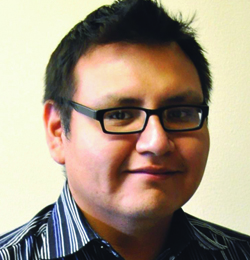 Whether we like it or not, addiction
Whether we like it or not, addiction
continues to be a theme in the Native American experience. Either by
stereotyping of the “drunken Indian” or the daily struggles we
endure, it has come to define our lives, sometimes for the good and
sometimes for the bad.
We may have personal stories of our
misadventures with alcohol and drugs or we may know a seemingly
endless litany of relatives and friends who were claimed by their
addictions through death or incarceration. It’s easy to fall into the
trap of victimization, to blame a substance or colonization for the
effects, there are plenty of reasons to be angry and self-righteous.
However, the difficult path, always less trodden, is to look at our
problems holistically, traditionally and with a measure of compassion
for everyone in our lives affected by their addiction.
There is a popular meme on social
media, “A sober Indian is a powerful Indian.” It is meant to
empower those who have lived their lives, thus far, substance-free or
those in recovery. What has always struck hollow for me about it is
that, traditionally, we acknowledged our powerlessness. In Lakota
culture, we understand that power is derived from the great mystery,
the great power or god. We humble ourselves in front of god as
atonement and encouragement. The ideal to strive for is the concept
of the common man, never too high in status, never too important for
others.
Other people are who we are called to
live our lives for, in service and gratitude for the relationship. We
are compelled to uplift one another so that we all may achieve a
sense of unity and joy, in order to share it with others.
In his speech before a group of
Minneapolis American Indian community members, Gerald Cross,
explained what was the initial cause of his addiction: loneliness and
a lack of belonging. “What got me going is that I didn’t have no
love, my parents’ addiction to alcohol and we were in foster homes.
We had decent [foster] parents who were white but we knew we were
different and they made us feel different. So we ran away and stayed
with people who accepted us.”
He continued his addiction as a
solution to feeling outcast. “We didn’t have any spirituality, we
were empty inside. The drugs made us feel better. I didn’t care about
nothing.” With time and recovery, Cross has been able to put
together sobriety. But it’s never easy and the commitment to it is
often misunderstood that once one is sober, one will always be sober.
The problem with that mindset is that
should one in recovery ever relapse, it becomes a moral or spiritual
failing of the individual and the common reaction is to shun and
ostracize, rather than uplift once again. The solution is to throw an
addict back into the pit of the problem. While that may be required
in extensive cases as a means of survival and mental well-being, it
lacks a sense of compassion and unity. The problem for most addicts
is not the substance, but with how to deal with life on life’s terms.
What the women of the Kwe Pack have
found is a solution in spiritual healing that sustains them in their
struggles of daily living. For them, embracing a healthy life in
running is what bonds them together in unity.
“We have a feeling of belonging to
something bigger than ourselves. We are in a safe and very positive
place … We carry our Indigenous identity proudly. It’s refreshing
to be a part of a group where other Native women actually build one
another up,” Chally Topping-Thompson said.
When things become rough going, they
know they can rely on each other, for the good of themselves, their
children and their people. Sarah Agaton Howes describes her
experience thusly, “I feel connected to our ancestors. I feel them
when we’re out there on those trails; the same trails they hunted,
gathered, traveled, portaged and lived in.”
So when approaching how best to live
in health, wellness and recovery, the resounding answer seems to be
that positive connection is what drives our health. While challenges,
fears and anger come into our lives almost daily, it’s important to
remember that we are a part of something greater than ourselves that
gives us strength but also sustains us.
Regardless of tribal affiliation, as
Native people, we have known this power throughout our histories.
This power of unity with the great mystery and one another is what
has seen us through the cultural and generational trauma that still
manifests itself today.
Coming together in common cause,
whether it be celebration or sadness, is something we’ve always known
to be effective at carrying on with our lives in good and positive
ways. As Native people, we should always remember that.





